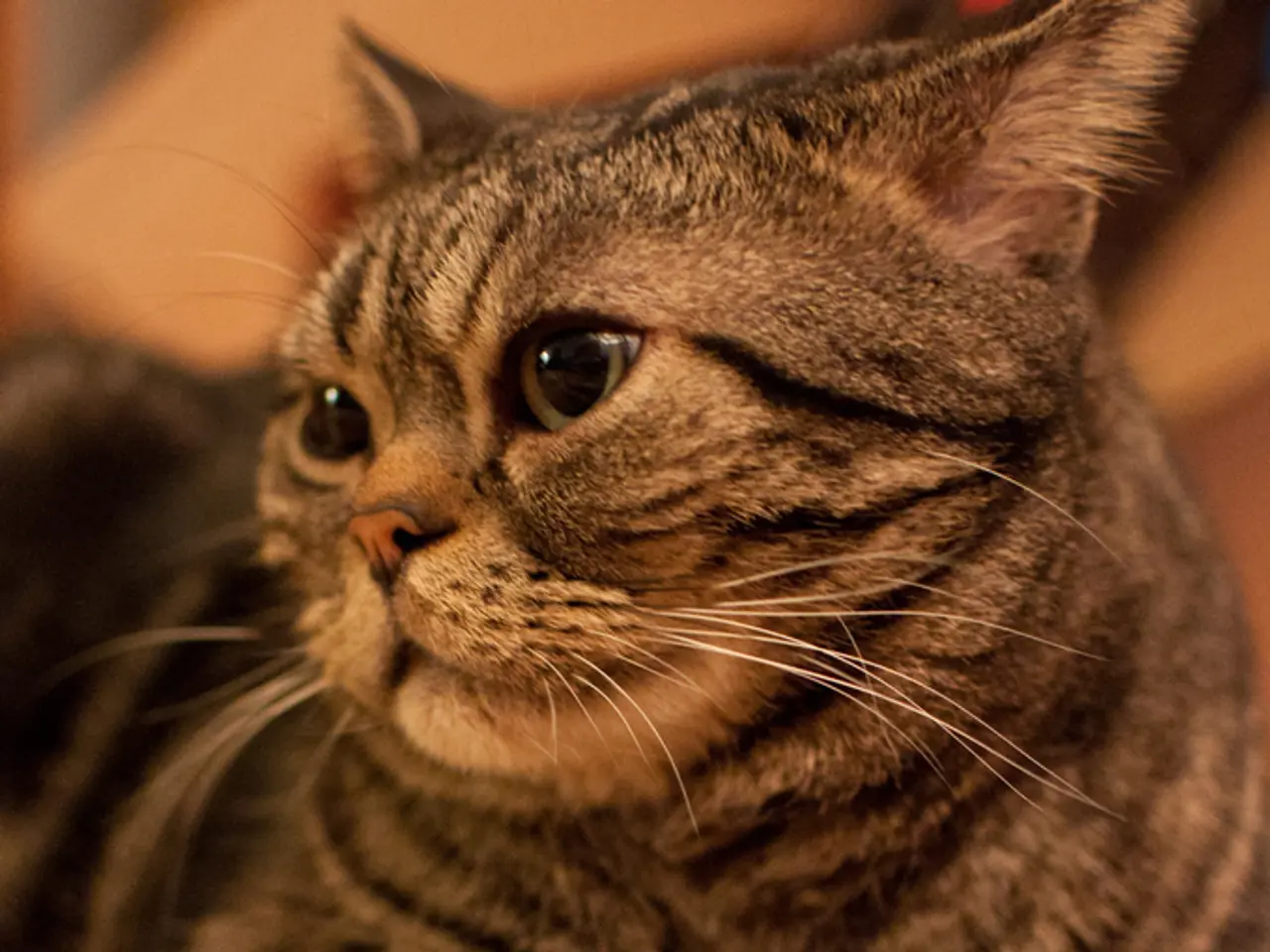Article on Feline Rapid Breathing
Understanding Abnormal Panting in Cats: A Guide for Cat Owners
Panting is not a common behaviour observed in cats, unlike their canine counterparts. However, when it does occur, it's essential to understand that it might signal an underlying issue.
Common Causes of Abnormal Panting in Cats
Abnormal panting in cats can be attributed to various factors, including heat stress, physical exertion, anxiety or stress, pain, heart disease, asthma, and respiratory diseases. Cats may pant normally after heavy play or to cool down in hot weather, but persistent or heavy panting is unusual and often signals a problem such as illness or pain.
When to Seek Veterinary Help
If your cat's panting is frequent, labored, lasts more than a few minutes, or is accompanied by other concerning signs such as lethargy, coughing, wheezing, drooling, hiding, or any changes in behavior, it is advisable to consult a veterinarian. Immediate vet attention is warranted if your cat is struggling to breathe, shows repeated vomiting, seizures, sudden collapse, or persistent coughing.
Emergency Treatment for Congestive Heart Failure
Cats with congestive heart failure, often due to hypertrophic cardiomyopathy, may exhibit difficulty breathing, panting, coughing, decreased appetite, weight loss, and risk of blood clots. In emergencies, treatment options may include oxygen therapy, diuretics, medication to slow down the heart rate, and aspirin.
Feline Asthma and Anxiety
Feline asthma is a condition in which a cat's body creates an allergic reaction to inhaled particles from the environment, causing constriction and narrowing of the airways in the lungs. Anxiety in cats can cause normal panting but may become a source of abnormal panting if ongoing. Signs of stress associated with panting include overgrooming, inappropriate urination, hissing, hiding, and changes in appetite.
Preparing for a Veterinary Visit
When traveling with a panting cat, ensure the cat is in a secured, travel-safe carrier that can be easily seen through, keep the car temperature cool, and play soft music to help relax the cat. It is also advisable to call the veterinary practice ahead of time to alert them of your arrival so that they can be best prepared for your arrival with oxygen therapy and other life-saving measures if necessary.
Managing Cat Anxiety
Anti-anxiety strategies for cats may include behavioral modifications, pheromone therapy, and anxiety medications and calming aids.
In conclusion, while normal panting can occur from heat and exercise, abnormal panting linked to respiratory, cardiovascular, or painful conditions requires prompt veterinary evaluation to identify the underlying cause and start treatment. As a responsible cat owner, it is crucial to monitor your cat's health and seek professional help when necessary to ensure their well-being.
[1]: Respiratory distress is one of the most common reasons for emergency visits in cats, often due to an underlying disease. [2]: If a cat is panting spontaneously, doesn't resolve quickly, and is accompanied by coughing, difficulty breathing, and/or lethargy, it should be considered an emergency. [3]: Cats with congestive heart failure, often due to hypertrophic cardiomyopathy, may exhibit difficulty breathing, panting, coughing, decreased appetite, weight loss, and risk of blood clots. [4]: Other causes of abnormal panting in cats include trauma, severe pain, disease in the brain or spinal cord, a distended abdomen, some toxicities, and feline asthma. [5]: Panting in cats is usually a sign of something being amiss. [6]: Certain cat breeds are more susceptible to panting, such as Himalayans, Persians, Maine Coons, and long-haired breeds. [7]: Heartworm disease, transmitted by mosquitoes, can affect cats and may cause coughing, panting, and labored breathing. There is no definitive cure, but treatment may include oxygen therapy and steroids. [8]: Cats can develop respiratory infections, causing difficulty breathing, coughing, panting, and lethargy. Treatment may include oxygen therapy, antibiotics, and humidifiers or steam therapy. [9]: When traveling with a panting cat, ensure the cat is in a secured, travel-safe carrier that can be easily seen through, keep the car temperature cool, and play soft music to help relax the cat. [10]: Abnormal panting in cats typically starts spontaneously or without any trigger and is not quickly resolved with rest or removal of the stressor or heat. [11]: Cats can pant, but unlike dogs, they rarely pant after playing. [12]: In doubt, clients should err on the side of caution and consult a veterinarian, request a virtual telemedicine video chat, or go directly to the office for assessment. [13]: Abnormal causes of panting include respiratory disease, asthma, congestive heart failure, heartworm disease, anemia, trauma, neurologic disease, distended abdomen, severe pain, and many other medical conditions.
In the context of health-and-wellness, understanding abnormal panting in cats is essential due to its potential links to various conditions, such as heat stress, physical exertion, anxiety or stress, pain, heart disease, asthma, and respiratory diseases (science). Prolonged or heavy panting, accompanied by lethargy, coughing, wheezing, drooling, hiding, or changes in behavior, warrants immediate veterinary help (mental-health).




